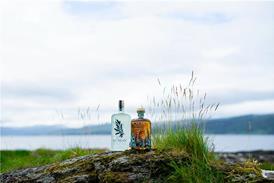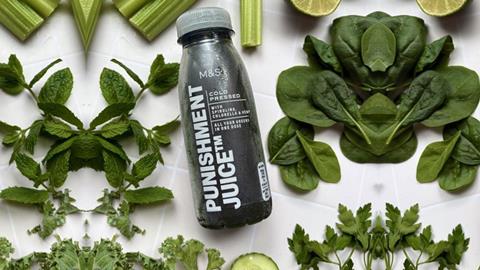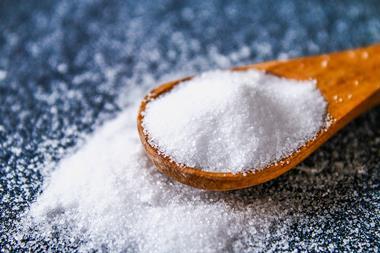Earlier this week, M&S unveiled Punishment Juice, a seven-vegetable cold-pressed juice drink containing ‘superfoods’ such as spirulina and hemp. Predictably, it’s about the same colour as a murky pond.
The not-so-appetising-looking NPD hit 400 stores yesterday, priced at £2.35 for a 250ml bottle. According to M&S it constitutes one of the 5 a day, while being low in sugar and a source of protein.
“It sounds almost too good to be true,” says the retailer, “and that’s why we’ve called it Punishment Juice – a disruptive name for a fresh-tasting, healthy product.”
A negative name?
In a LinkedIn post, M&S Food MD Alex Freudmann explained the name had been a “running joke” among the team, who had often expressed a desire to create “a drink that does something to offset the indulgence” after a night of heavy eating and drinking.
M&S is obviously confident Punishment Juice’s negative-sounding name won’t hamper sales. Conversely, it’s likely to work in its favour, as consumers often seek out challenging flavours when shopping the functional drinks category, as it plays into their perceptions of efficacy.
Moju and Rebel Kitchen have previously acknowledged this phenomenon, with both admitting they intentionally add zingy and spicy ingredients to their juice shots. Moju’s recent ‘Wake Shake Boom’ campaign celebrates the punchy flavour of its products. Meanwhile, Rebel Kitchen added lemon juice to its camu camu berry shots, after consumer testing revealed a preference for a more sour flavour.
Indeed, industry insiders quickly flooded Freudmann’s post with positive reactions to Punishment Juice.
Pack’d senior national account manager Mitch Lee wrote that M&S had “nailed it with the marketing”, while food photographer Ansuya Puri commented: “I’m more intrigued by it than I would be if it was called the nourishment drink… funny how the mind works.”
Diet culture
But despite the tongue-in-cheek positioning, Punishment Juice’s name has already opened M&S up to criticism, with nutrition experts arguing it feeds into the rhetoric of toxic diet culture, whereby treats or “cheats” must be atoned for.
“These words, no matter how ironic, should never be attached to food,” registered dietician and nutritionist Laura Clark told Metro. Meanwhile, registered dietitian Aleks Jagiello said: “I worry that if someone takes ‘Punishment Juice’ seriously as a detox or penance, it might reinforce guilt-driven eating patterns.”
Similar concerns were raised last May, after Love Island star Paige Thorne told her TikTok followers she was subjecting herself to a “punisher” day of two hours’ of cardio after eating “really badly” on holiday.
In response to Thorne’s post, personal trainer Steve Ahern from Musclefood.com warned that this “choice of words can be extremely triggering for some people because it sends out a message that not exercising or eating healthy should be punished”.
For this reason, Punishment Juice risks alienating Gen Z. As a whole, they exhibit higher levels of body positivity than previous generations and drink less alcohol, so are less likely to pick up a bottle of the juice as ‘penance’ the morning after a night out.
Even so, M&S has demonstrated it’s not afraid to take a risk with NPD. After all, it launched Yay Mushrooms, a nine-strong range of functional drinks containing lion’s mane and reishi mushrooms in January, and earlier this week it unveiled a Wimbledon-themed strawberry and cream sandwich…
If the retailer can convince its shoppers to add these unusual products to their baskets, perhaps Punishment Juice will also make the cut.




















No comments yet